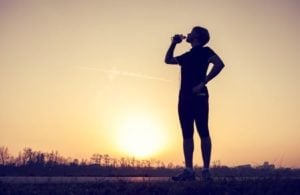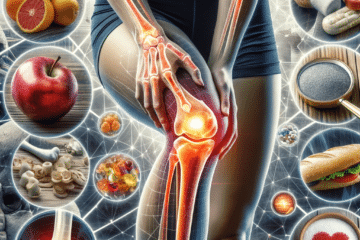
Should we really drink 64 oz of water per day?
Although many people have heard that they should drink 8 glasses of water a day, there is actually no scientific evidence to support this. What this recommendation fails to account for is that water is found in prepared foods and other drinks like tea or juice.
How do I know when to drink?
Research shows that we’ll be just fine if we listen to our bodies and drink when we feel thirsty. The feeling of thirst occurs before we’re dehydrated.
Is there any benefit to drinking extra fluids?
No, despite popular opinion that excess fluids rid our body of toxins and prevent disease, most of the research shows that healthy individuals do not benefit from this…
- This study followed 120,000 participants for 10 years and found that total fluid intake and water intake were not associated with heart disease or stroke mortality.
- This study analyzed 262 bladder cancer cases and 405 healthy controls, and found “that the intake of water and specific beverages is overall not associated with risks of bladder cancer.”
- This study of almost 4,000 men and women aged 49 and over found that fluid intake had no effect on chronic kidney disease, cardiovascular mortality, or all-cause mortality.
What about hydration for people who exercise?
The American College of Sports Medicine’s current Position Stand on exercise and fluid replacement recommends that during exercise, athletes “prevent excessive (>2% body weight loss from water deficit) dehydration and excessive changes in electrolyte balance.” After exercise, athletes should “replace any fluid electrolyte deficit.”
However, it’s difficult to translate these recommendations into a precise fluid intake amount because there’s a lot of individual variability when it comes to athletes. People sweat at different rates depending on a number of factors, including body weight, clothing, and location (indoors or outdoors, air conditioning, climate, etc.).
For those who are curious, one way to find your personal sweat rate is to measure the difference in your weight before and after physical activity. But, similar to what was described above, a simpler way of thinking about exercise and fluid replacement is to drink when you’re thirsty. Athletes who are forced to drink excessive amounts of fluids even when they’re not thirsty are at risk for hyponatremia (low blood sodium), a condition that can be severe enough to result in death.
In addition, it’s important that you rest when you don’t feel well. Surprisingly, research shows that dehydration does not increase susceptibility to muscle cramping as long as “fatigue and exercise intensity are controlled,” nor does it increase susceptibility to heat problems. The biggest problem seems to be athletes who push themselves beyond their limits.
So, next time your glass is half full (or half empty), know that you don’t have to fill it up 7 more times.
We wish to thank Ms Angelina Noriega for this guest post.
Angelina is a recent graduate of Cornell University. She is spending the year as a medical scribe to learn more about the profession she has chosen to pursue. After working with her for three months I can honestly say that any medical school in this nation would be lucky to have her in their 2017 matriculating class.














